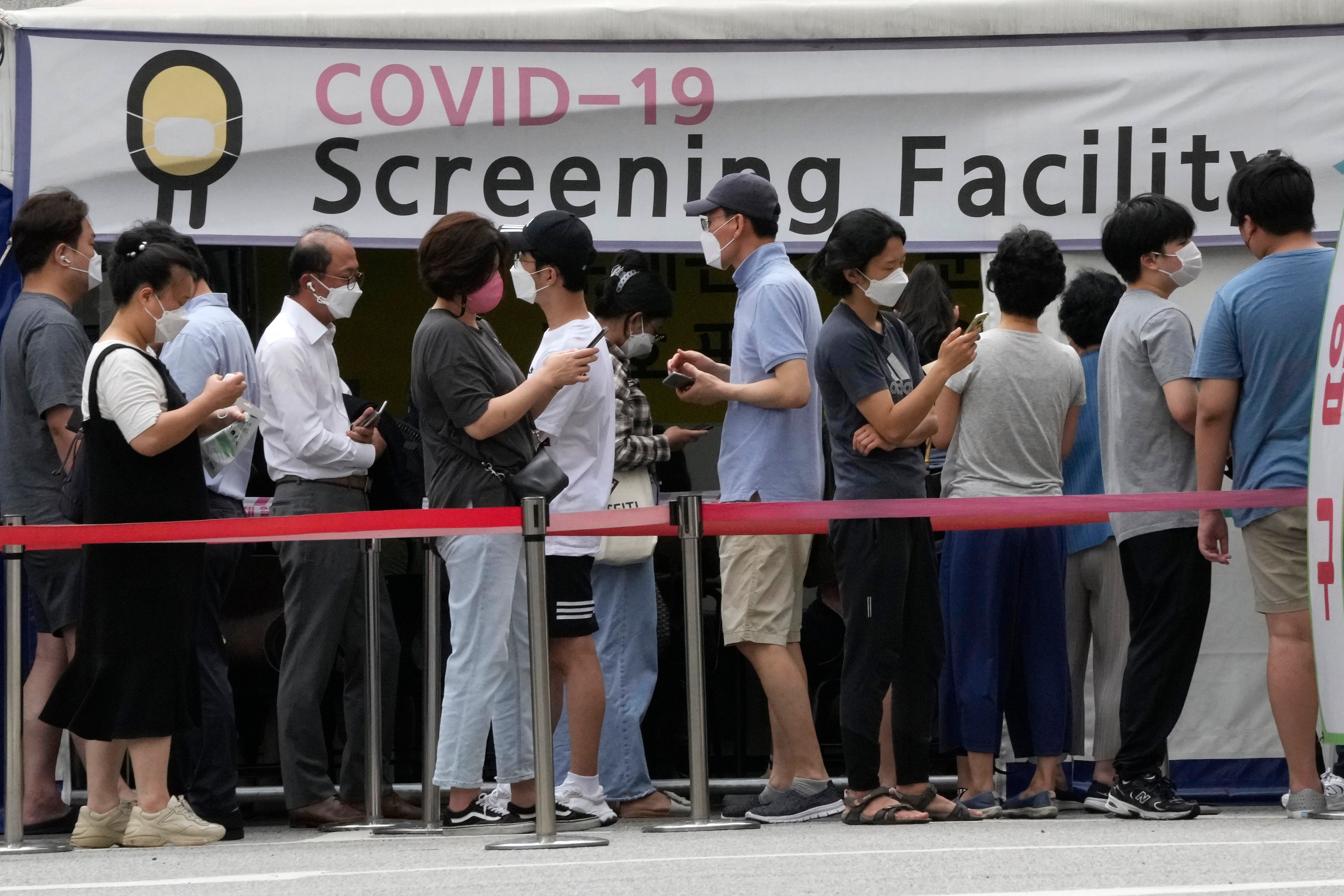South Korea imposes strictest Covid rules yet after record spike in infections
Seoul and nearby areas are going to be under level 4 restrictions, with almost lockdown-like rules

Your support helps us to tell the story
From reproductive rights to climate change to Big Tech, The Independent is on the ground when the story is developing. Whether it's investigating the financials of Elon Musk's pro-Trump PAC or producing our latest documentary, 'The A Word', which shines a light on the American women fighting for reproductive rights, we know how important it is to parse out the facts from the messaging.
At such a critical moment in US history, we need reporters on the ground. Your donation allows us to keep sending journalists to speak to both sides of the story.
The Independent is trusted by Americans across the entire political spectrum. And unlike many other quality news outlets, we choose not to lock Americans out of our reporting and analysis with paywalls. We believe quality journalism should be available to everyone, paid for by those who can afford it.
Your support makes all the difference.South Korea has tightened Covid-19 restrictions in Seoul and nearby regions after the country posted a second consecutive record increase in coronavirus infections, many of which are suspected to be of the highly contagious Delta variant.
This is the first time the Korean nation has been forced to impose curbs of the strictest level, as the country has so far managed to contain the outbreak better than many nations.
In a televised government meeting, prime minister Kim Boo-Kyum announced two weeks of tough curbs at level 4, which is the most severe on South Korea’s scale and just short of a total lockdown. A top health official also warned the new case numbers may nearly double by the end of July.
“Seoul alone saw 500 confirmed cases for the third day,” Prime Minister Kim said during Friday’s government meeting. “Four out of five infections are from the metropolitan Seoul area.”
South Korea reported a record increase in Covid cases on Wednesday at 1,275, followed by another record of 1,316 new cases on Thursday.
The restrictions are set to come into effect from Monday, however, the prime minister advised the public to refrain from any private gatherings from Friday. He also said that during the two-week semi-lockdown, the government will suspend a programme introduced earlier this year that allowed mask-free outdoor gatherings for citizens vaccinated with at least one Covid shot.
Health minister Kwon Deok-Cheol said that around 78 per cent of the locally acquired cases were concentrated in the greater Seoul area, and the detection rate of the highly transmissible Delta variant surged nearly three-fold in a week.
Under the new curbs in the capital and nearby areas, people are advised to stay home unless necessary, while schools will switch to remote learning and employers are advised to increase flexible staffing with 30 per cent of staff working from home.
Social gatherings are also restricted to four people before 6pm and two people after, and political rallies are completely banned. No spectators are allowed to attend sports matches, while movies and concerts are not allowed after 10pm.
Hotels can only operate at two-thirds capacity and restaurants and cafes will be required to have limited seating earlier in the day and only take away services after 10pm. Nightclubs and bars are ordered to be completely shut.
Although confirmed case numbers are rising, South Korea isn’t yet facing a surge in deaths or hospitalisations for severe Covid, which has been put down to a vaccination drive targeting older people.
The current mortality rate stands at 1.23 per cent, and the present number of severe cases – 148, as of Thursday – is at a level lower than the last peak in December.
Experts say the government’s Covid strategy is to avoid a serious hit to the economy that has been seen in full lockdowns elsewhere.
“The government strategy is to steer away from lockdown fearing a negative impact on the economy. Level 4 is the harshest it can get,” Kim Dong-Hyun, former president of the Korean Society of Epidemiology, was quoted by Reuters as saying.
South Korea’s total Covid-19 infections to date stand at 165,344, with 2,036 deaths. So far, only 10 per cent of the country’s 52 million population has received both shots, while 30 per cent have received at least one dose, the majority of whom are aged over 60.
Join our commenting forum
Join thought-provoking conversations, follow other Independent readers and see their replies
Comments